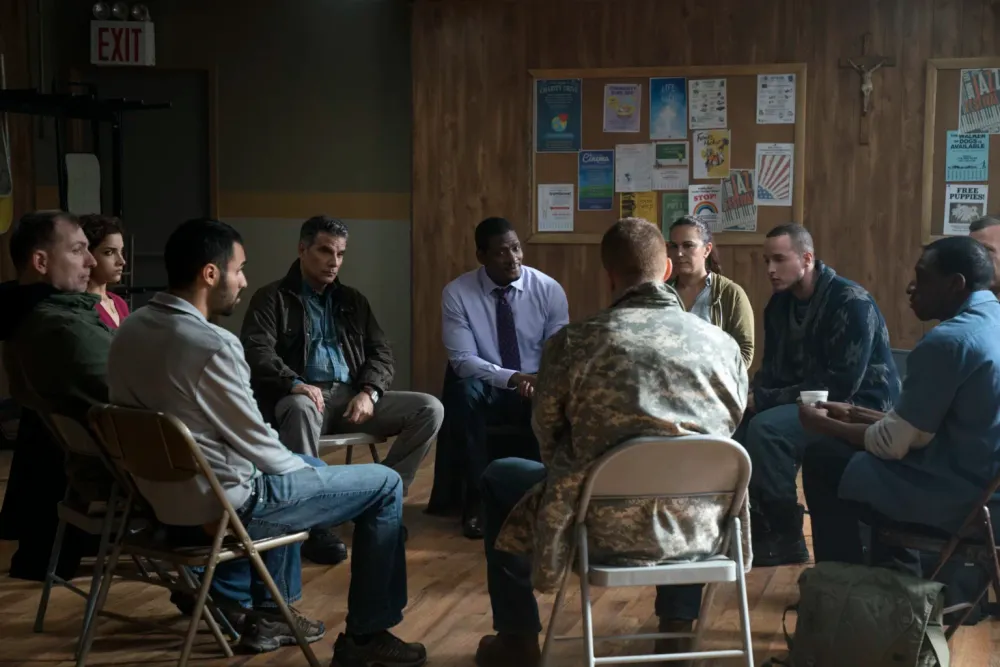How Are Veterans Affected By Substance Abuse?
Substance use disorders (SUDs) present a significant issue for veterans across various nations, including the United States where substance abuse rates continue to rise among this group. SUDs encompass a broad range of conditions related to drug misuse, dependency, or addiction, whether involving illicit substances or prescribed medications.
Despite their commonality, recognizing a substance use disorder in an individual can be challenging. Diagnosing such disorders often involves observing behavioral patterns and symptoms. Veterans, in particular, face an elevated risk of developing a substance use disorder due to their exposure to traumatic events. This exposure can lead to PTSD (further discussed below) or other mental health issues, which may drive them towards substance use as a way to cope.
The connection between substance abuse and veterans is particularly strong when considering suicide rates. One study found that approximately 30% of veteran suicides involved drug or alcohol use. Addressing the comprehensive well-being of veterans is impossible without confronting the substance abuse issues they may experience.
Prevalence of PTSD Among Veterans
Post-traumatic stress disorder (PTSD) is a major contributor to substance abuse among veterans. PTSD arises from experiencing traumatic events, and due to their exposure to war, violence, and humanitarian crises, many veterans struggle with this condition, impacting their daily lives.
Veterans are more prone to PTSD compared to the general populace, given their unique experiences of violence or combat that civilians typically do not face, making them more vulnerable to certain mental health challenges.
PTSD in veterans can also stem from military sexual trauma, combat-related trauma, and abuse within military environments. These experiences often lead to mental health complications and potential substance misuse.
Additional Symptoms Faced By Veterans
Veterans frequently contend with anxiety and depression alongside PTSD, exacerbating their challenges with substance abuse and addiction. Below are several common symptoms indicating a need for mental health and addiction support among veterans:
- Flashbacks
- Feelings of hopelessness
- Difficulty sleeping
- Relationship difficulties
- Hostility
- Memory issues
- Self-harming actions
- Substance misuse
Specialized assistance from veteran support programs and addiction treatment centers can offer crucial guidance and support, ensuring no one has to face these challenges alone.
The Impact of Chronic Pain and Physical Trauma on Substance Use
In addition to PTSD, many veterans endure chronic pain, which can also lead to substance abuse. Prescription medications are the most common treatment for managing acute and chronic pain, yet they often carry a high risk of addiction, resulting in misuse.
Veterans diagnosed with chronic pain due to injuries are frequently prescribed opioid medications. Drugs like morphine or Oxycontin can become highly addictive. Regularly prescribed medications can lead to addiction, often unnoticed by healthcare providers despite the increased risk for veterans.
The frequent use of prescription drugs for pain management among veterans and military personnel makes them particularly vulnerable to substance abuse. Using these medications to alleviate emotional or physical discomfort often results in misuse due to PTSD or other concurrent disorders.
Approaches to Addressing Substance Abuse in Veterans
Overcoming addiction begins with identifying triggers and developing strategies to navigate these in a healthier manner.
Veterans in recovery receive support from medical staff to detoxify their bodies from substances. Mental health professionals are also available, offering both individual and group therapy to help veterans realize they are not alone in their struggles.
Group therapy sessions allow veterans to learn new behaviors alongside peers. They can engage in various therapy programs, including art, music, and mindfulness, to aid their healing journey. The skills and activities learned during recovery can support their sobriety long-term. Additionally, family therapy is accessible to assist veterans and their families in communicating and overcoming these challenges.
In addiction recovery, healthcare professionals employ a range of evidence-based techniques, such as cognitive-behavioral therapy (CBT), dialectical behavior therapy (DBT), and eye movement desensitization and reprocessing (EMDR). A study examining CBT's impact on older veterans with severe addiction and mental health issues found it particularly beneficial for those facing complex social, mental, and physical challenges.
Reducing Stigma and Encouraging Help-Seeking Among Veterans
Social stigma surrounding mental health and substance abuse often prevents veterans from seeking help. Many fear being perceived as weak if they acknowledge their struggles. However, reaching out for assistance is the crucial first step.
The subsequent phase involves learning to live in recovery without relying on substances as a coping mechanism. Residential treatment and inpatient programs offer viable paths toward recovery.
Choosing to serve one's country is a noble decision, yet it often exposes individuals to trauma during combat. Consequently, many veterans turn to substances to numb the associated pain.
Veteran support groups and treatment programs equip individuals with the necessary tools to acknowledge past traumas and embark on a healing journey. For more information on addiction treatment options, consider contacting a qualified professional at Impact Recovery today.
